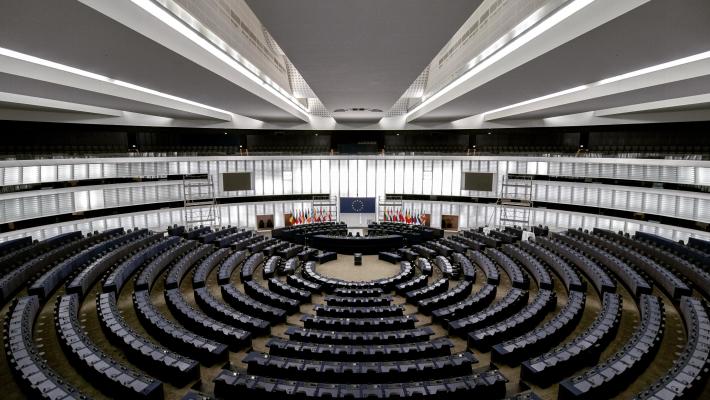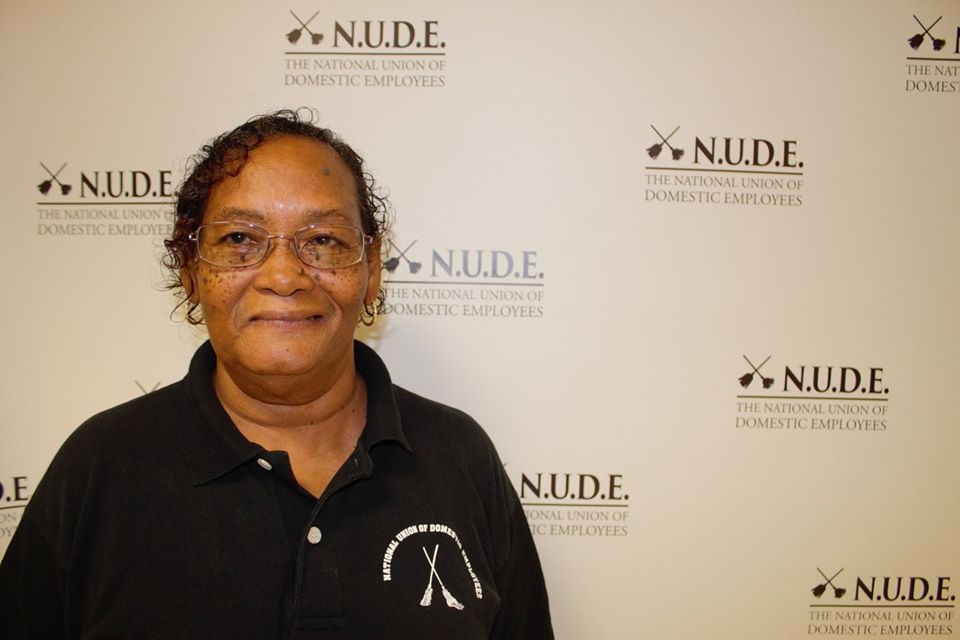Describe your experience and current work in parallel reporting.
GI-ESCR has engaged in parallel reporting on women’s land rights issues before the CESCR, CEDAW and the Human Rights Committee. To date, we have submitted over 40 such reports, the vast majority in partnership with local and national groups and secured a range of progressive pronouncements which are have been used to strengthen local advocacy. We have sought to point out both patterns of de facto, as well as de jure discrimination against women, and to address how intersectional discrimination impacts different groups of women in relationship to land. Where possible, and where resources allow, we have also brought partners to Geneva to engage directly with these review processes.
We have focused on women’s rights to land and productive resources because in many parts of the world, women are too often denied access to productive resources such as land, due to entrenched patterns of gender discrimination and exclusion. This situation both reflects and deepens gender inequality, and leaves women far more vulnerable to the multiple threats of food insecurity, violence, marginalization, and economic impoverishment, as well in many cases to the devastating effects of HIV/AIDS. Levels of legal protection are uneven and in many countries there are still significant gaps in legal frameworks. A major part of the remaining challenge revolves around implementation and enforcement, as well as awareness raising and changing of practices on the ground.
Please, share with us one or two successful experiences in parallel reporting.
As an organization, we partner with locally-based advocates to play a key role in creating strategic ‘wins’ in international human rights spaces, which can then strengthen the advocacy of those partners on the ground.
We do this by:
- Submitting joint reports/ written and oral submissions;
- Bringing partners to Geneva and supporting their direct participation when possible;
- Helping to support local roll-out projects;
- Assisting with training and providing advocacy support to partners;
- Raising the profile of women’s land rights in international and regional human rights spaces.
One good example of our work – and of the ways in which we try to collaborate – has been our partnership with ActionAid in Burundi. While statutory law in Burundi upholds the notion of gender equality, customary law routinely discriminates against women in relation to land and inheritance rights. Most land holdings in Burundi are acquired by succession. In Burundi, there is no law that specifically provides for women’s equal inheritance rights and inheritance is largely governed by customary laws that discriminate against women. The negative consequences of the absence of an inheritance law include women’s lack of empowerment and the continuation of violence against women, particularly within the context of land related disputes.
With our partner ActionAid Burundi, GI-ESCR presented parallel reports to the UN Human Rights Committee (2014), the UN Committee on Economic, Social and Cultural Rights (2015) and the CEDAW Committee (2016) highlighting violations of women’s land rights in Burundi. In all three cases, we were able to successfully ensure that the Committees made strong recommendations to the government of Burundi on strengthening the status of women’s land rights. Recommendations included:
- To adopt a national Succession law to protect the equal inheritance rights of women;
- To put in place safeguards to secure land tenure rights of women throughout the registration of land procedure, as well as to address the issue of women’s unequal rights to land and property generally in land policy;
- To submit information on steps taken to implement and expressly address the issue of women’s right to land and property, and give details of the actual situation facing women in this regard.
In Burundi, efforts were then made by ActionAid Burundi to popularize the Concluding Observations and the focus was on raising the awareness of local women themselves. Because the Kilimanjaro Initiative was a major focus of ActionAid Burundi’s work on women’s land rights in the country, raising awareness amongst communities and rural women of the Concluding Observations fed into that overall advocacy effort. Four training sessions were organized from the community level in the Provinces of Rutana and Ruyigi, which brought together 201 women’s representatives who were informed about the content of the CESCR Concluding Observations. Women as well as men were informed about the UN recommendations to nullify those aspects of Burundian customary law that discriminate against women in all matters pertaining to land, and to have the State adopt a law protecting women’s equal inheritance rights.
How was the parallel reporting process useful to your work and what did it allow you to do or achieve? What were some limitations or challenges?
We engage in the parallel reporting process because we believe that international human rights law has a critical role to play in tackling these issues. Women’s equal rights to land are well-established in international human rights laws and standards, including specific protection for rural women under Article 14 of CEDAW. Therefore, the international human rights treaty bodies can be powerful mechanisms for highlighting violations relating to land and property rights for women, encouraging good State practices and holding States to account when violations occur.
There are many challenges, however, including costs and logistical challenges in getting partners to Geneva, and coordinating reports against the timetables of the various Committees. We also feel that it is vital that the successes made through parallel reporting have an outlet in terms of local advocacy. Continuing the process of advocacy after Geneva begins with widely disseminating the Concluding Observations. It is important to ensure that domestic decision-makers and rights holders know about and understand the Concluding Observations by, for example, issuing a press release, arranging forums, workshops, meetings and consultations with a range of stakeholders. Contacting local government authorities to discuss the issues identified in the Concluding Observations can be a useful way to open new dialogue with government. Frequently local NGOs establish coalitions which devise strategies to monitor implementation of the Concluding Observations, collate data, continue to lobby government and raise awareness about the Concluding Observations at the community level.
How have you worked/been working towards the implementation of the concluding observations?
Yes, implementation remains a challenge, and it is in part why we engage in partnerships with local and national groups. These groups take the lead on implementation, although we try to provide support where we can (please see the example above with ActionAid Burundi).
In addition, similar examples include:
- On Kenya, our advocacy with partners over time has yielded successful Concluding Observations addressing women’s land rights from CESCR (2016) and the HRComm (2012). In country, our partner FIDA-Kenya held a strategy meeting with both state and non-state actors in Nairobi. The meeting, aimed at popularizing the Concluding Observations on Kenya by CESCR, was attended by representatives of several key NGOs and national institutions, including the National Gender and Equality Commission.
- In Ghana, we have worked with IGED-Africa on developing an information pack on relevant sections of the Concluding Observations from the CEDAW Committee (2015) with the aim of sharing this widely with CSOs and also utilize this as advocacy materials to engage with relevant government Ministries.
- In Uganda, we have worked with our partner, the Center on Economic, Social and Cultural Rights in Africa (CESCRA) to promote implementation of the Concluding Observations in Uganda from CESCR (2015). A meeting was held t with the Ministry of Gender and various CSOs (participants included the Equal Opportunity Commission, the Uganda Human Rights Commission, UWONET, HURINET, ULA, ISER, SEATINI and some Commissioners from the Ministry of Gender).
What suggestions would you give to other members who are considering engaging with treaty bodies?
Engaging with the international human right treaty bodies can be an effective and impactful strategy, but it should not be the only strategy. It should be part of a broader advocacy approach, and organizations should try to clarify as much as possible the specific goals that they have when engaging with these processes. In other words, it is important to be clear about the desired results and to communicate about this openly with the Committees. It is also best to try and engage directly with the mechanisms, and to come to Geneva in as far as is possible. In engaging with the treaty bodies, it can be useful to connect with an organization like GI-ESCR which has a long experience working with these mechanisms, which may be able to offer support to your efforts.


